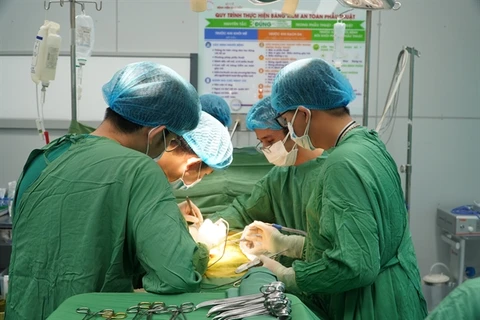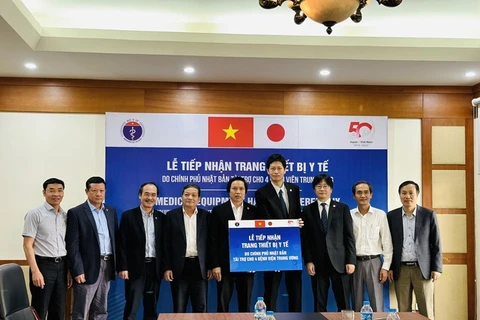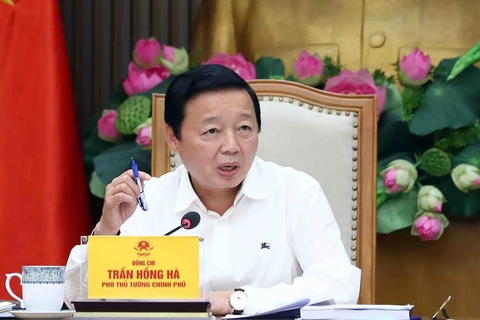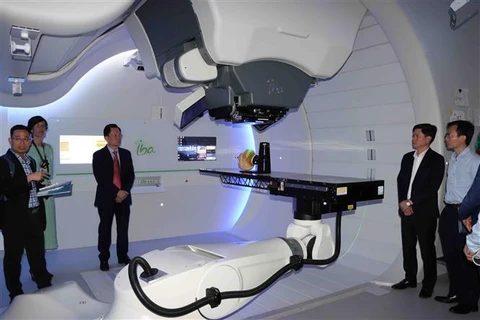 The Ministry of Health has proposed that five special-grade hospitals will be upgraded to modern hospitals with healthcare services in line with international standards. (Photo: VNA)
The Ministry of Health has proposed that five special-grade hospitals will be upgraded to modern hospitals with healthcare services in line with international standards. (Photo: VNA) The proposal is included in the national health system development plan for the 2021-2030 period, with a vision towards 2050, aiming to reduce the number of Vietnamese people going abroad for treatment, as well as to attract foreigners to come to Vietnam for medical examination and treatment.
According to Associate Professor, Dr Luong Ngoc Khue, Director of the ministry’s Medical Examination and Treatment Department, Vietnamese doctors have succeeded in mastering many high-level treatment techniques such as dental procedures, in vitro fertilisation (IVF), stroke treatment, liver, kidney, and heart transplantations, joint treatment, endoscopic surgery, eye surgery, and diagnostic techniques.
"The development of medical techniques has attracted many overseas Vietnamese to come back to the country for treatment. Several major hospitals in Vietnam have recently attracted a significant number of foreign patients for medical check-ups and treatment," he said.
He said one of the strengths of the domestic healthcare system is its lower costs compared to other countries while maintaining a comparable quality.
The MoH also proposed upgrading and investing in 20 provincial general and specialised hospitals to be able to receive patients from the entire region, especially in areas with difficulties in accessing central-level hospitals and densely populated areas.
In the development plan, the MoH also outlined the direction for the development of non-public healthcare sectors, focusing on providing high-quality technical services, on-demand medical examinations and treatment, encouraging public-private partnerships, and private investments.
It aims to expand the bed capacity of private hospitals to reach 10% of the total national bed capacity by 2025, 15% by 2030, and 25% by 2050. By 2025, the country is expected to provide 35 hospital beds, 15 doctors, 3.4 university-trained pharmacists, and 25 nurses per 10,000 residents.
These numbers are expected to increase to 35 hospital beds, 19 doctors, four university-trained pharmacists, and 33 nurses per 10,000 people by 2030.
It is anticipated that there will be around 45 hospital beds, 35 doctors, 4.5 university-trained pharmacists, and 90 nurses per 10,000 people by 2050.
The report from the planning consulting unit showed that the accessibility to central-level hospitals in some regions is very low.
In the Central Highlands region, there are no central-level hospitals, while in the Mekong Delta region, with 14 provinces, there is only one central-level hospital.
Additionally, approximately 80% of patients who seek medical check-ups and treatment at central-level hospitals do not trust the quality of healthcare services provided at lower-level facilities.
Currently, only 32.8% of health centres and district hospitals and 27.6% of commune health stations can perform 80% of the list of technical services./.
VNA
























